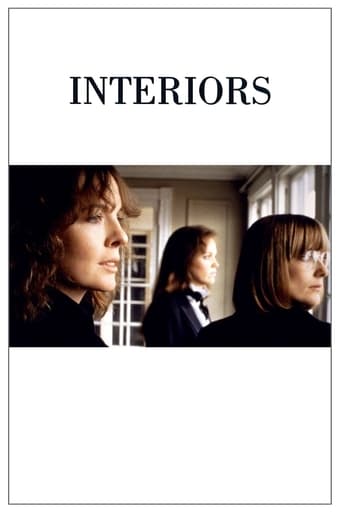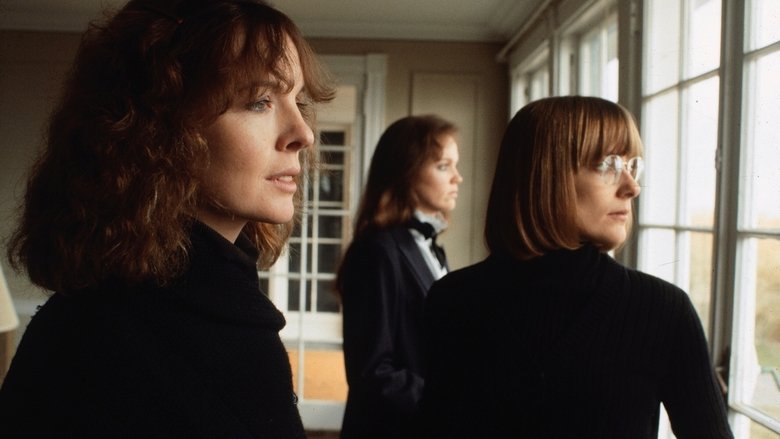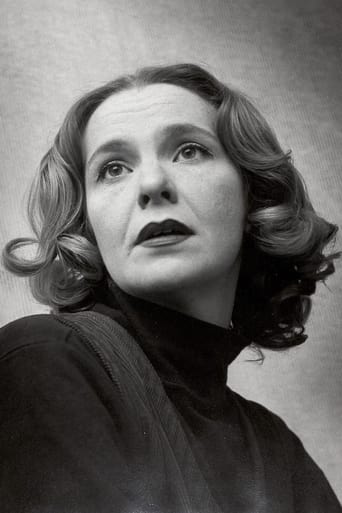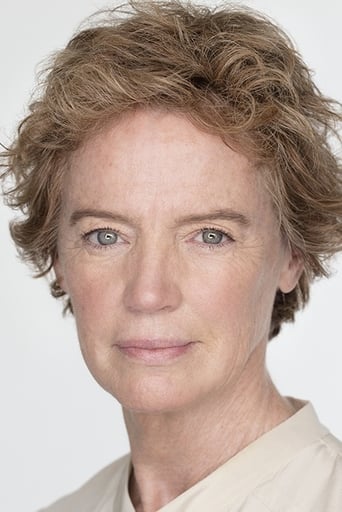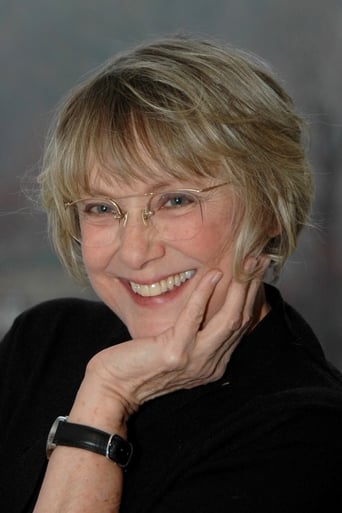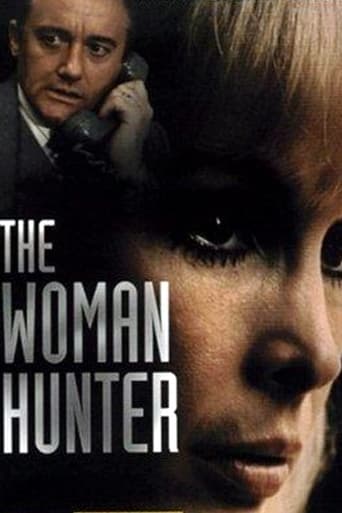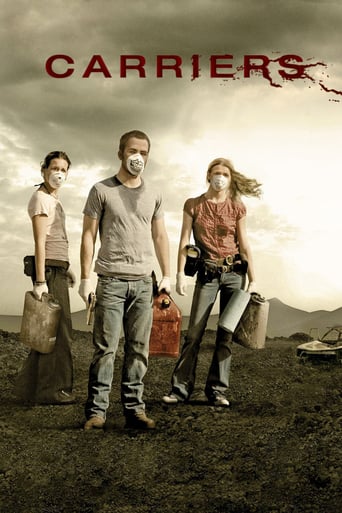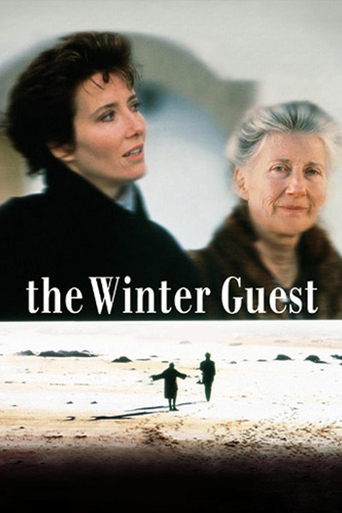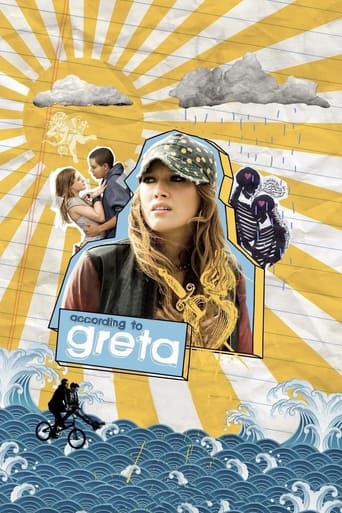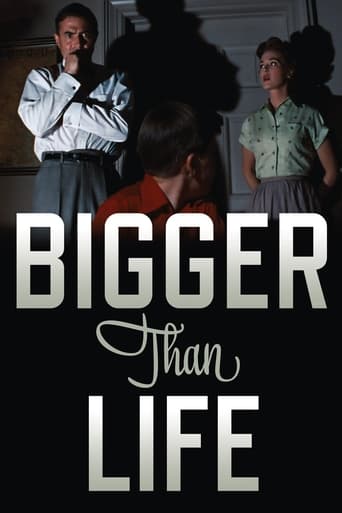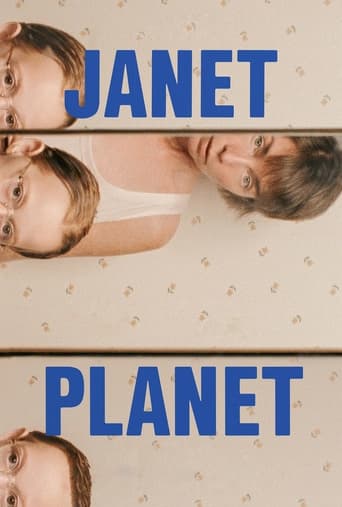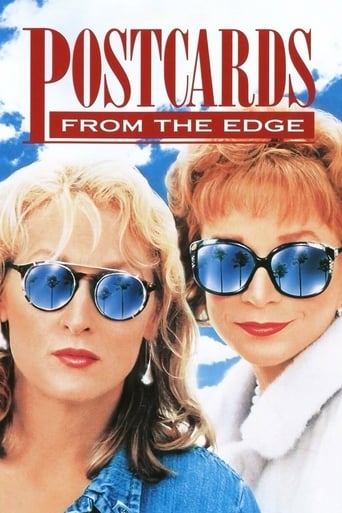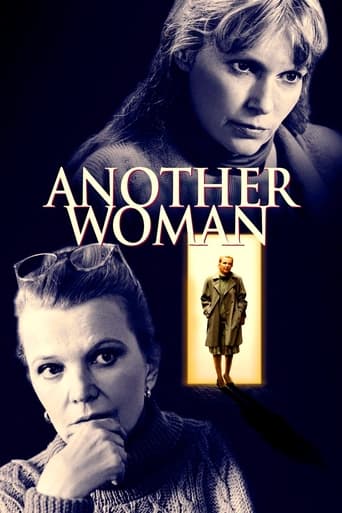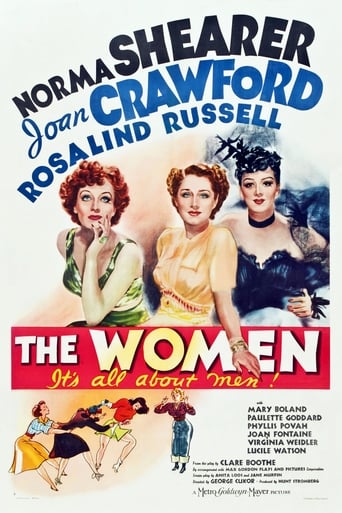Interiors (1978)
When Eve, an interior designer, is deserted by her husband of many years, Arthur, the emotionally glacial relationships of the three grown-up daughters are laid bare. Twisted by jealousy, insecurity and resentment, Renata, a successful writer; Joey, a woman crippled by indecision; and Flyn, a budding actress; struggle to communicate for the sake of their shattered mother. But when their father unexpectedly falls for another woman, his decision to remarry sets in motion a terrible twist of fate…
Watch Trailer
Free Trial Channels
Cast


Similar titles
Reviews
Lack of good storyline.
It’s not bad or unwatchable but despite the amplitude of the spectacle, the end result is underwhelming.
Very good movie overall, highly recommended. Most of the negative reviews don't have any merit and are all pollitically based. Give this movie a chance at least, and it might give you a different perspective.
The movie is made so realistic it has a lot of that WoW feeling at the right moments and never tooo over the top. the suspense is done so well and the emotion is felt. Very well put together with the music and all.
For any person exploring Woody Allen's filmography right from the beginning, 'Interiors' when it appears, will always prove to be a very intriguing and peculiar film to confront and examine as it is so very different from anything that comes before it. In the initial stage of his career, Allen's films were slapstick comedies which were ornamented by heavy dozes of homages to comedic greats like the Marx Brothers, Charlie Chaplin and Buster Keaton. However the change in tone in Allen's films can be noticed from 'Love and Death' onwards. In 'Love and Death', although we get the slapstick, there is a certain air of restraint in it compared to his earlier efforts like 'Sleeper', 'Bananas', etc. Then with 'Annie Hall', the comedic treatment of the relationships and characters became far more mature and his emphasis was more on using the intricacies of cinematic medium and storytelling techniques to drive home the comedy instead of slapstick. But with 'Interiors', Allen's attempt to steer his career and his style to a new direction and maybe become a more 'respected' dramatic director in the eyes of critics came to its fruitful conclusion. There is a distinct presence of stark austerity in 'Interiors' which is not something that can be found in the Allen films preceding this one.Now Allen himself has mentioned Eugene O'Neill as an influence in the process of writing the story and the creation of the characters for 'Interiors' and most certainly that connection can be made in the way the film tragically explores disillusioned characters grappling with depression, but from a cinematic and visual standpoint, one can't help but notice the heavy influence of Ingmar Bergman and his chamber piece dramas. Bergman's influence on Woody Allen is common knowledge. There are umpteen comedic references to Bergman films in his own films including his own version of the 'Dance of Death' in 'Love and Death'. The existential Bergman-esque themes of silence of God, meaning of life are things that Allen has also always been interested in.In 'Interiors', as the name foreshadows, Allen stages 95% of the scenes in the confines of the rooms of the characters' homes. The Bergman-esque technique found in films like 'Autumn Sonata' or 'Cries and Whispers' of allowing the suffocating confines of the interiors to gradually propel the repressed inner struggles of the involved characters to the surface inevitably leading to an emotional explosion is used by Allen in this film. However I don't think 'Interiors' is just an example of Allen mimicking Bergman. He manages to create a unique cinematic vibe by internalising the austerity of Bergman and blending them with his own sensibilities by creating characters that feel very much like the New York upper class intellectual individuals that many of his films have explored. We are introduced to a somewhat dysfunctional family whose lives get permanently shaken when the father/patriarch,Arthur decides to opt for a separation from his marriage which also makes the mentally unstable matriarch, Eve fall further into a state of untenable depression. Allen explores the fragility of the New York elite- class. Can some of the character problems that are tackled here be labeled as First World Problems? Most Certainly. But in the hands of a perceptive director/writer, the petty sibling rivalries and personal existential crises seem very relateable, understandable and intriguing.There is a distinct element of inclusiveness in terms of characters that can be found in the screenplay. Allen consciously makes an effort to give us a comprehensive idea of the personal struggles that every character of this family is dealing with and which they might be hiding from the others and for the most part this works to the benefit of the film as this approach makes every character unique and lifelike. However, I also think this inclusiveness ends up being detrimental to the film in the overall context. This is because in trying to juggle with the sensibilities of so many characters, the film in the end somewhat forgets, abandons and leaves by the wayside, some of the issues in the lives of these characters which were raised and given importance to previously in the narrative,leading to a sense of incompleteness due to lack of closure.The camera doesn't do anything extra-ordinary except for one or two extended sideways tracking shots because Allen deliberately allows the scenes and the dialogue to flow. Instead Allen uses some deliberate editing choices to elevate and intensify the impact of a number of scenes. He knows exactly when to cut to which face and capture a particular reaction or when to hold a shot to raise the tension. The sound mixing becomes integral in the later portions of the film.The tone of acting set by Allen is very naturalistic and realistic. Every character for the most part seems believable. However I have to give special mention to Geraldine Page, Diane Keaton and Mary Beth Hurt. They each give performances of subtlety and depth. All three work together and elevate every scene that they are a part of.To conclude, I'll say that Ingmar Bergman's influence is heavily identifiable in 'Interiors', however it is unfair to call this a mere act of mimicry as some critics have done. It doesn't completely achieve greatness due to the sudden abandonment of seemingly important character issues towards the end of the film, but it certainly does come close to achieving greatness due to immensely mature storytelling and the skillful interplay between really complicated characters. Recommended.
Woody Allen might be famous for some other movies, but this one is, for sure, something else. Quite unique possibly in his opus especially regarding the tempo and the atmosphere (dialogues not so much), it is much more reminiscent of Bergman's movies. Whenever you engage in such a complex subject such as relations between now grownup daughter and their emotionally inadequate mother, you are on a terrain where staying on the right course is a very subtle art. To me, Interiors primary call to mind Michael Haneke's remarkable Love. The ending of Interiors is perhaps one of the most amazing endings I have ever seen. Uncompromising, brave and precise. Casting is remarkable, to say the least.
In Allen's Stardust Memories, he lifted from Fellini and did it well by applying his own coat of comic absurdity which he always feels comfortable with. Here, the opening is reminiscent of Bergman, with its icy silence, the harsh, despairing voice-over and the bleak sparsity of nature reflected back at our character. This was Allen's first attempt at a drama after the hugely successful Annie Hall, and it shows. It is also his first film not to feature himself, which I think is crucial. Allen seems a little pained when he needed to diverge from that comedic archetype and can't quite let go. Crimes and Misdemeanors is brilliantly constructed but seems to flit in and out of a morbid moral dilemma and a lighter hearted Allen type who doesn't get all that he wants. In Interiors, the characters speak at length like they were in an Allen comedy, but continue with a darker, psychological edge about them. A decade later Allen would make the full fledged comedy version of this film in Hannah and Her Sisters, revolving not around the mother but the perfect sister. In that film, Allen seems again to be tacked on. The title refers to the mother hen of the family, Eve, who is an interior decorator. It is immediately obvious that this is less a career of passion than obsession; while she fields the questions of her children and their partners, she rearranges the room and muses that this shade is too strong and that this vase should belong in the bathroom. Many people would share this mania for control. But then we slowly discover that her preferences are not just directed towards furniture and decor; her children have long been pigeon-holed into their own neat little categories, and when her husband Arthur announces a trail separation, she reacts with the same speechless shock as if she was seeing a vase out of place or awkwardly clashing with the colour scheme. The precise rigidity of her life has been marred. The three sisters each have their own lives and troubles. Middle child Joey, traditionally the one with the less attention, has a terrible sort of curse on her life, being an intuitive and thoughtful thinker but not having the artistic talents or gifts her siblings have to express them. She is therefore the object of least affection, or at least until Eve has something to complain or vent about. The youngest is Flynn, who is the most beautiful and the most free of the family, relatively. It is obvious that time spent away from their toxicity has given her new life and license to pursue her dreams without her mother vicariously living through her every achievement. Naturally, they talk and snidely insult her behind her back. Keaton's Renata is the weakest of the trio - she comes off a little whiny, as the designated Allen intellectual probing with the issues of death and immortality. She has discovered that no matter how revered her poetry is, or how much it will be recited beyond her grave, it is of little meaning. She has the sort of gift that Joey would kill for, but endlessly agonises over other issues. The film's strengths lie in these characters and their dynamics which bounce off each other, and reveal bruises and long forgotten scars. Their dialogue is as heavy as Allen has ever written, although his detractors will once again question the sincerity of these issues on the backdrop of such a wealthy high-class lifestyle. They drown each other out in their arguments, and fling their own insecurities at one another in hopes of getting a tiny bit of recognition and sympathy. It becomes clear that this trait is inherited from none other than Eve herself, and suggests that it may be passed on in time. And then there is Pearl, the bright and exotic house-wrecker type that turns a trail separation into a permanent divorce. But it isn't during the children's youth, and although the family seem baffled by Arthur's decision, it does not seem unreasonable. He has provided for the family for a long time and feels as if he should be free to chase his own desires. Maureen Stapleton enters in a flashy red dress that no doubt would disgust Eve (and wreck the colour palette of the interiors). She's sensible, she's compassionate, she talks freely of her past loves without a hint of emotional baggage or resentment. She doesn't quite feel like discussing the nuances of the play they just saw. And there's the remarkably well-handled scene where she shows off her 'magic' and offers to read fortunes, except she is just turning over cards until she gets to the right one. What seems to be something that is set up for ridicule by the high-class intellectual family becomes a bit of harmless fun. And in resuscitating Joey, she breathes new life and sets herself up as the newer, more capable mother candidate, the complete antithesis of Eve. This is not as complex or confident in its dramatic depth as some of Allen's later films, but it remains an important step for his career.
Corporate attorney Arthur (E. G. Marshall) wants to separate from his wife Eve (Geraldine Page). They have three children as the news hit the family members differently. Eve was an interior decorator who supported her husband's early career. However her state deteriorates and the separation puts her over the edge. Joey (Mary Beth Hurt) is with her boyfriend Mike (Sam Waterston) and struggles for a direction. Successful poet Renata (Diane Keaton) is struggling at her work and her marriage to Frederick. Flyn (Kristin Griffith) is the absentee daughter with a B-movie career. The three sisters clash and their father returns from Greece with new girlfriend Pearl (Maureen Stapleton).Woody Allen is doing Ingmar Bergman in an artistic family drama. It is quiet with little or no music. It's considered his first major drama. There are nice performances as each character shows his/her damaged interiors. It's an interesting exercise that Woody Allen is doing but it would be better if he finds his own voice rather than copying somebody else's. The muted tones keep the movie from truly exploding. It is still compelling to watch.

